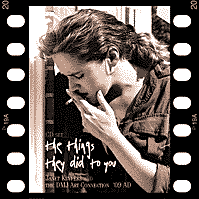
[the Writing of Kuypers] [JanetKuypers.com] [Bio] [Poems] [Prose]
 See the YouTube video (3:10) of Janet Kuypers reading her poem “A Child In The Park” during her “Beach Poets 8/14/05 feature” at Chicago’s Loyola Beach (video posted on Facebook, Twitter, Linkedin, Pinterest, Instagram, and Tumblr). #janetkuypers #janetkuyperspoetryshow
See the YouTube video (3:10) of Janet Kuypers reading her poem “A Child In The Park” during her “Beach Poets 8/14/05 feature” at Chicago’s Loyola Beach (video posted on Facebook, Twitter, Linkedin, Pinterest, Instagram, and Tumblr). #janetkuypers #janetkuyperspoetryshow
|

Watch this YouTube video (5:54) recorded on the Pacific Ocean 12/07 near the Galapagos Islands |
 Listen
Listen |
 Listen to & download
Listen to & download |

See YouTube video of Chicago poet Janet Kuypers reading her poem A Child In The Park 7/9/16 at Native South Food Park poetry and music event in Austin TX (filmed with an iPhone). |

See YouTube video of Chicago poet Janet Kuypers reading her poem A Child In The Park 7/9/16 at Native South Food Park poetry and music event in Austin TX (filmed with an iPhone, and given a Sepia Tone filter). |

See YouTube video of Chicago poet Janet Kuypers reading her poems “Military Police”, “Get me out of this Cage”, and “a Child in the Park” from her book “Chapter 38 (v2)” 5/19/18 at Austin’s “Recycled Reads” open mic (from a Panasonic Lumix 2500 camera). |

See YouTube video of Chicago poet Janet Kuypers reading her poems “Military Police”, “Get me out of this Cage”, and “a Child in the Park” from her book “Chapter 38 (v2)” 5/19/18 at Austin’s “Recycled Reads” open mic (from a Panasonic Lumix T56 camera). |
a child in the parkthis was no ordinary park, mind you: therewere no swings or children laughing; there were different children there. There was recreation:
tennis, the pool, and a maze of streets for bicycles
People drove golf carts around in the park, or large
tree-tops cris-crossed over the streets. In the afternoons,
I remember the summer afternoons when it rained in
There was even a street named after me in the park,
pretending I was grown-up, feeding the ducks,
Oh, I remember Mr. Whorall, how he would walk
I was getting better at the game every time he saw me.
just before Halloween. She invited me in to help
And there was Ira and Betty Wiggins, who lived on
They had a hammock on their porch, and art so
many things collected from all their travel. They both
went to the side of the road, and with a spoon pulled
decorated with Panamanian art, at the pool table, playing
watch me on Easter Sunday, me in my pastel dress, by
And I remember the McKinleys, Pete and Lindy, another
would visit them just to hear them talk. And Pete would try
classes since the last time I visited the park. Sometimes they
It was like another world there. The park was
thirteen, when my parents told me I was an aunt.
from Blue Skys Drive. The couple that had the ornate
peace” painted in white on the metal. Yes, I say, I
to, I think, all these memories are slowly disappearing.
lifestyle, another everything. This was not an ordinary
|
![]()
![]()
![]()



